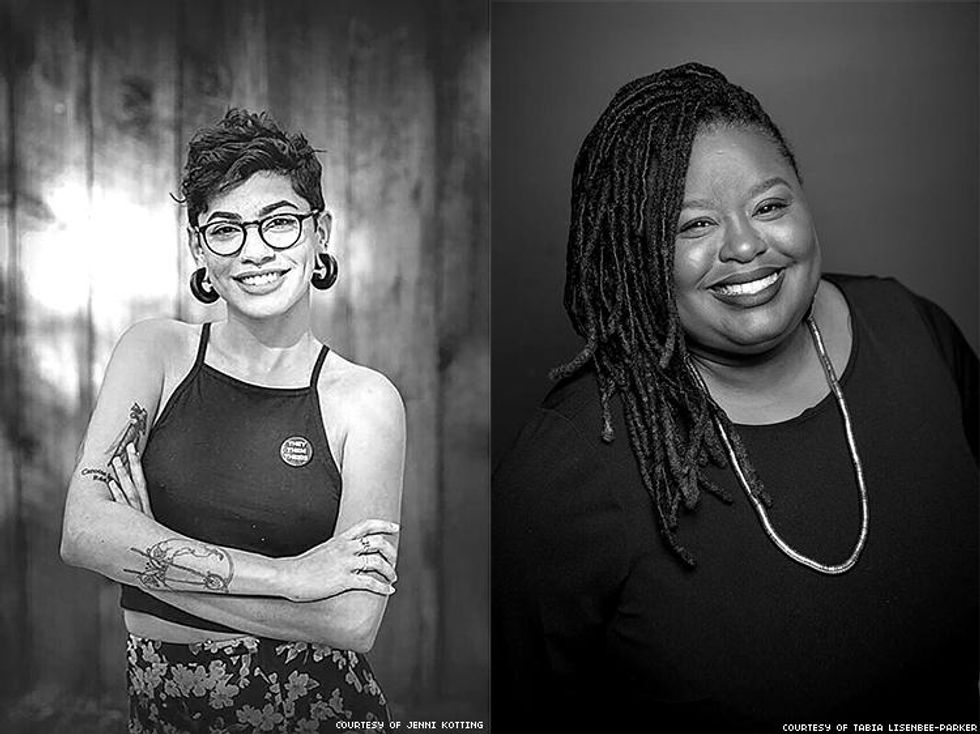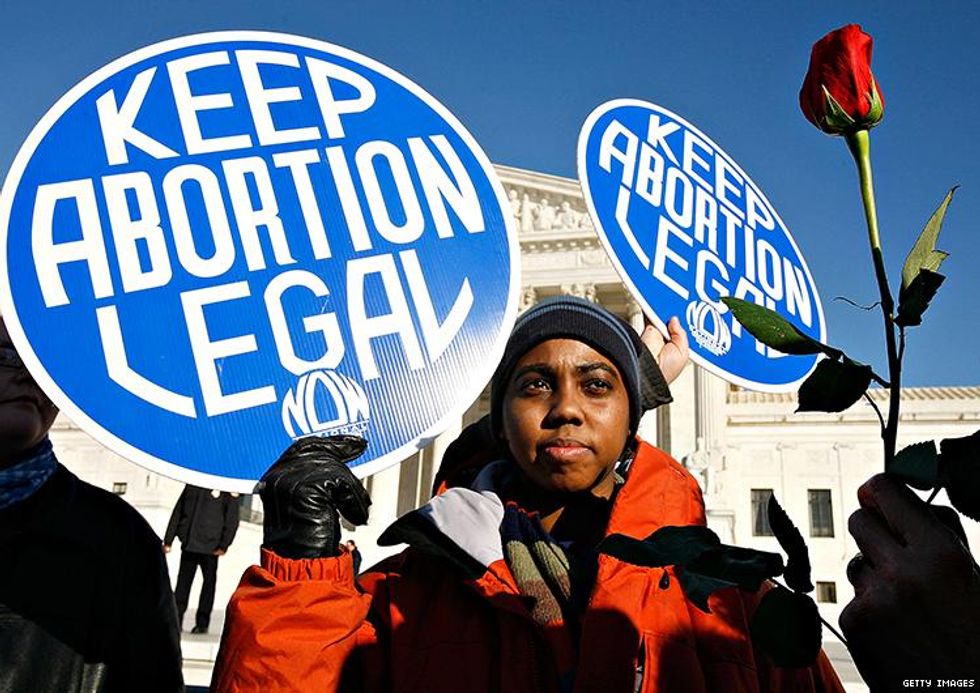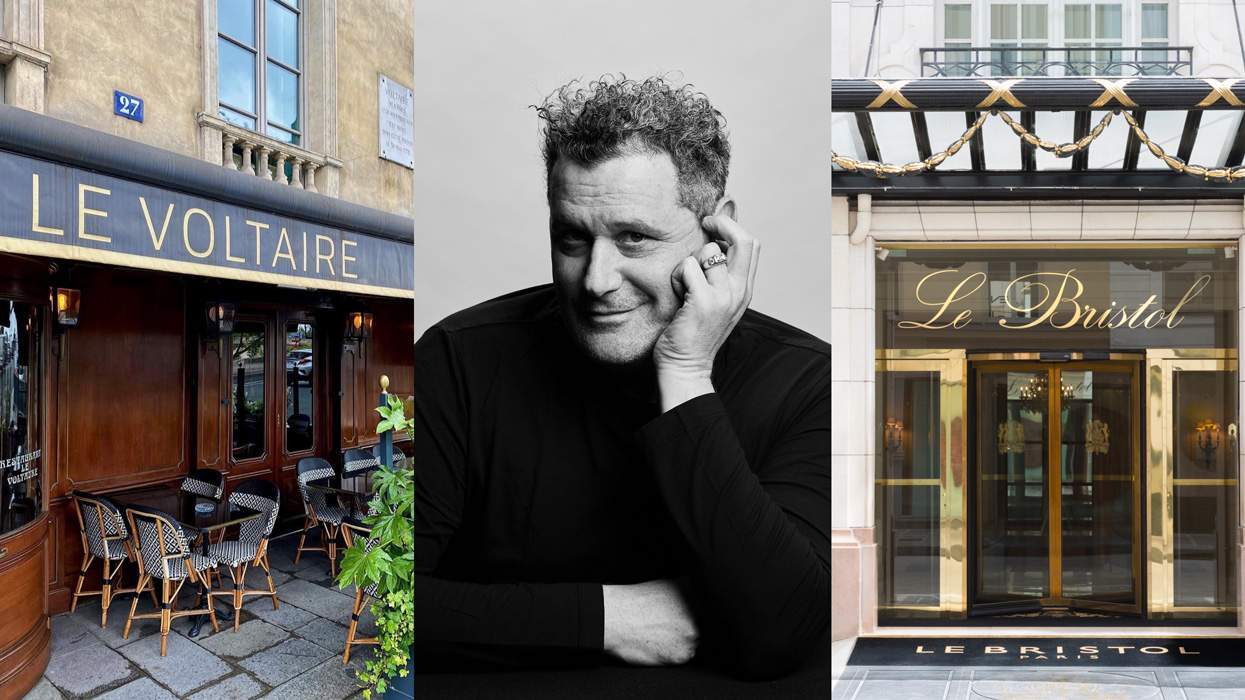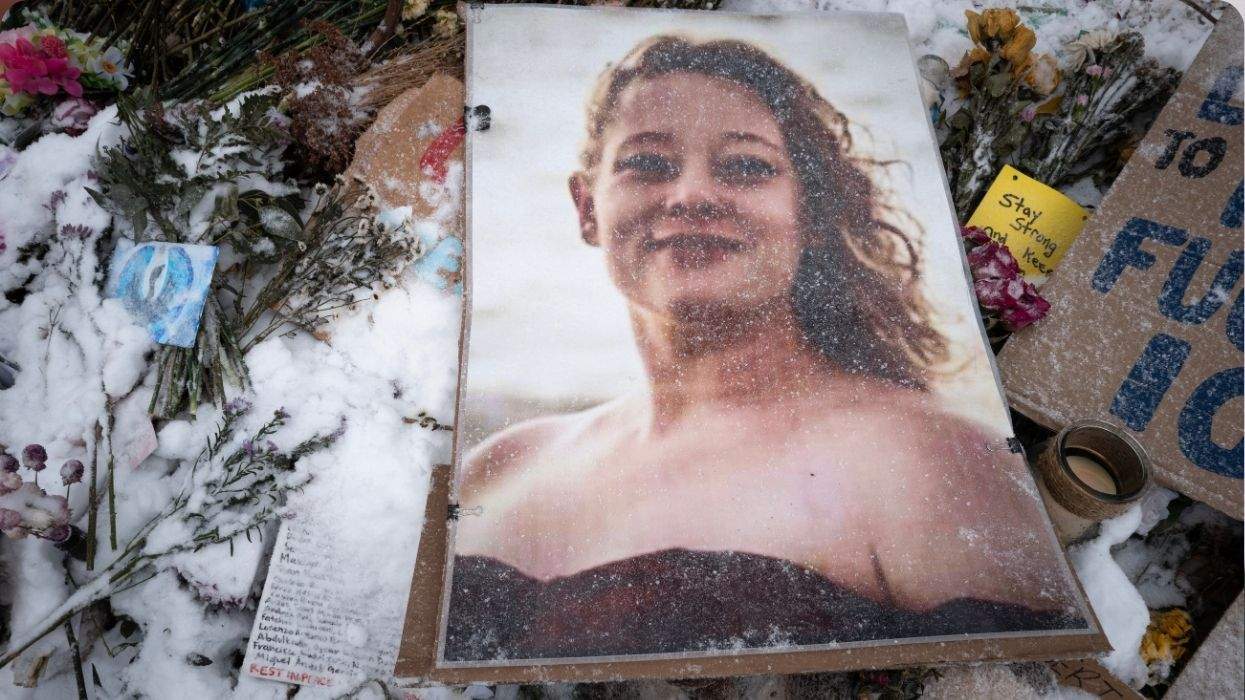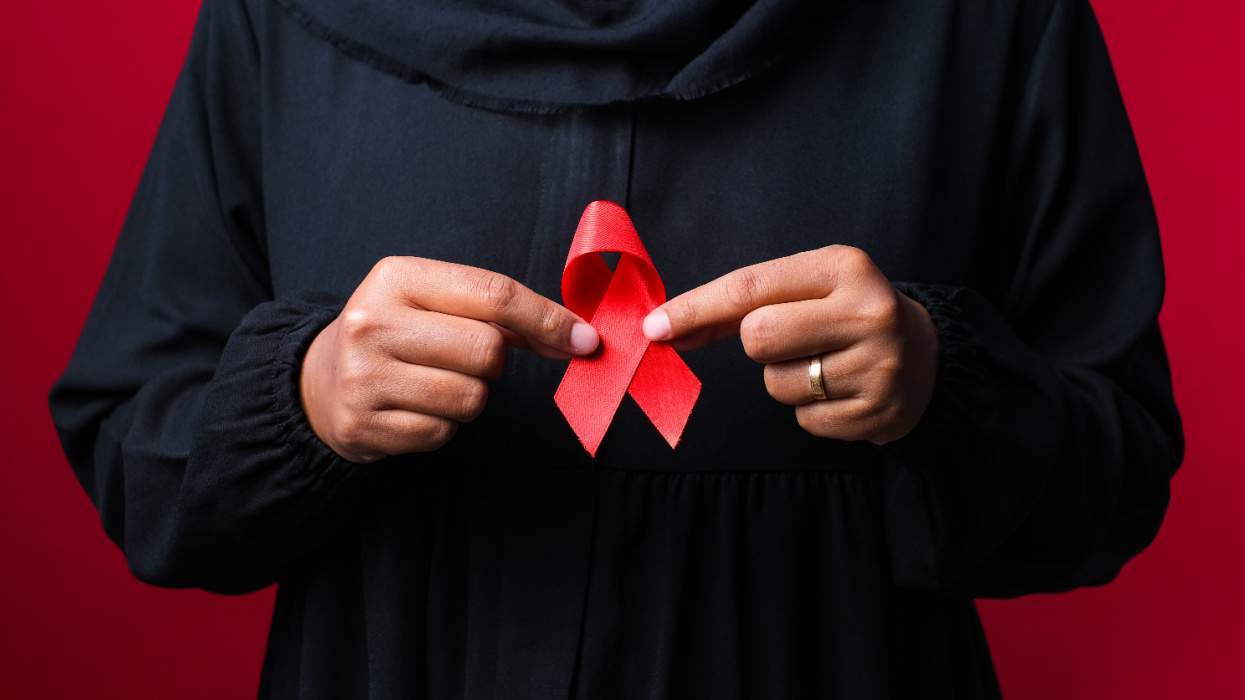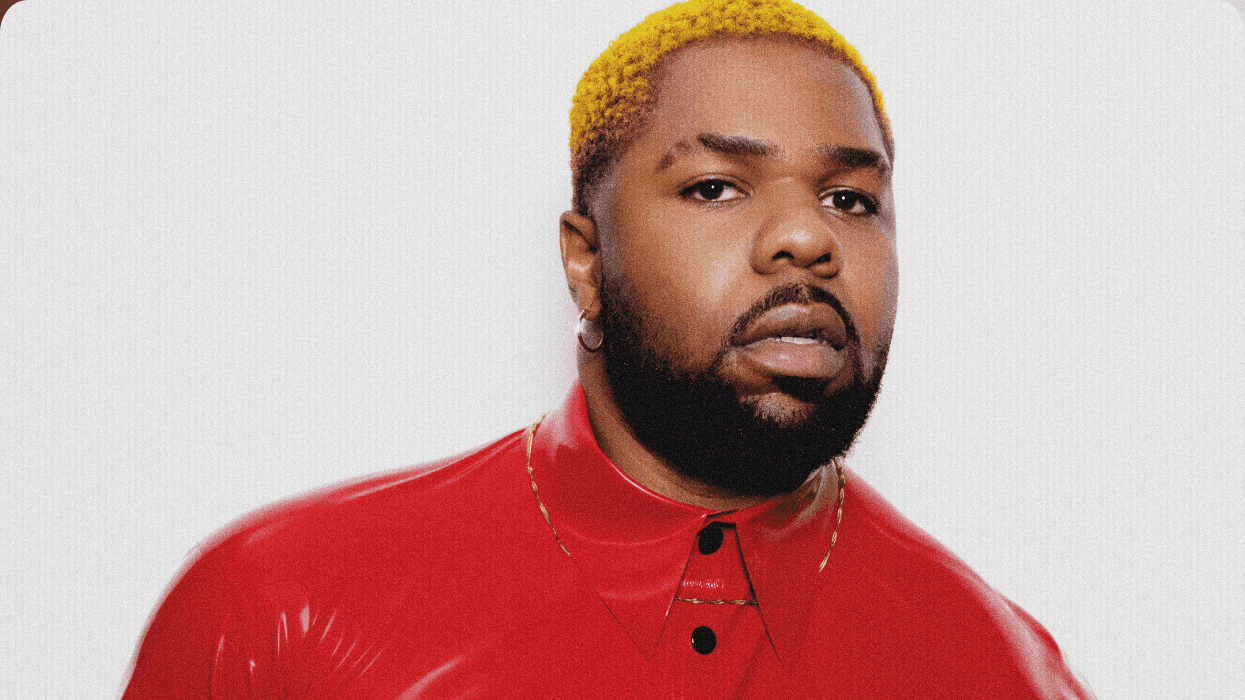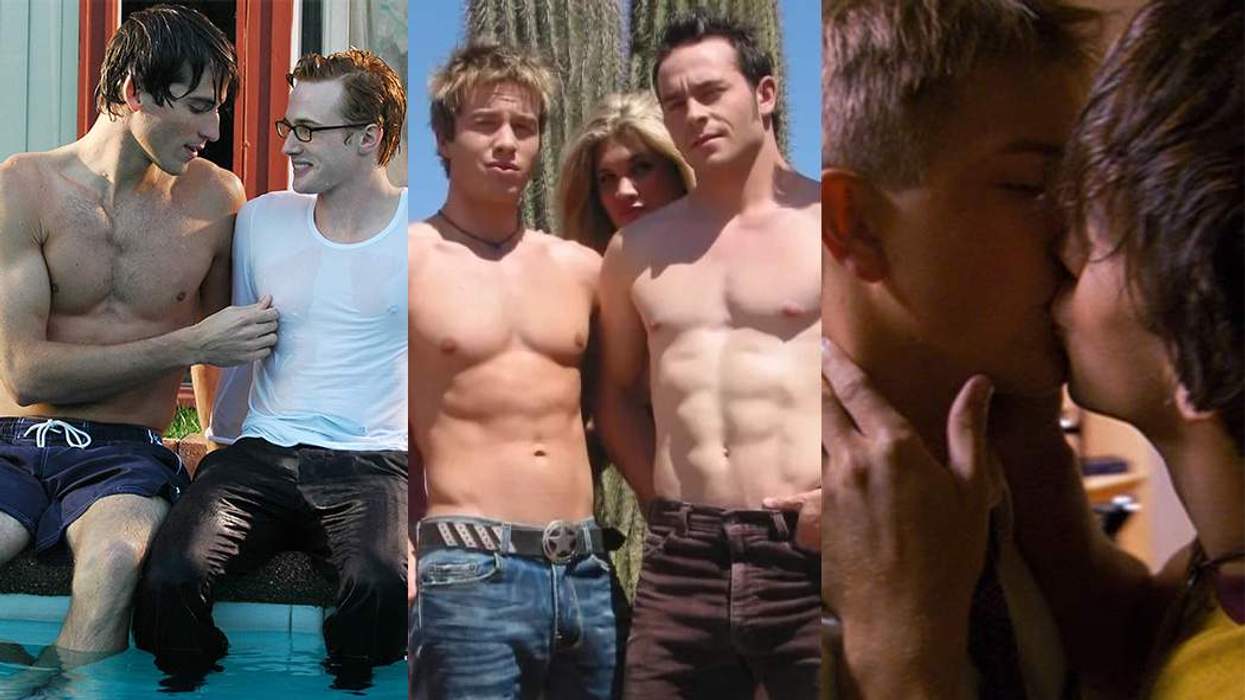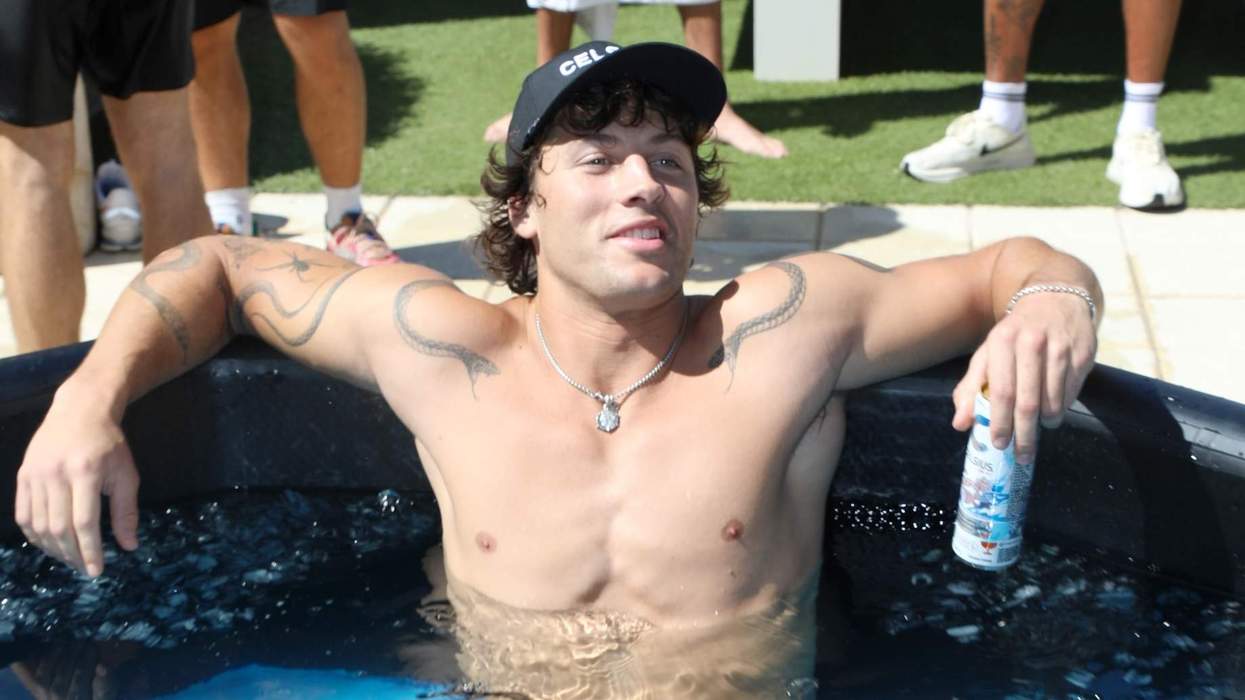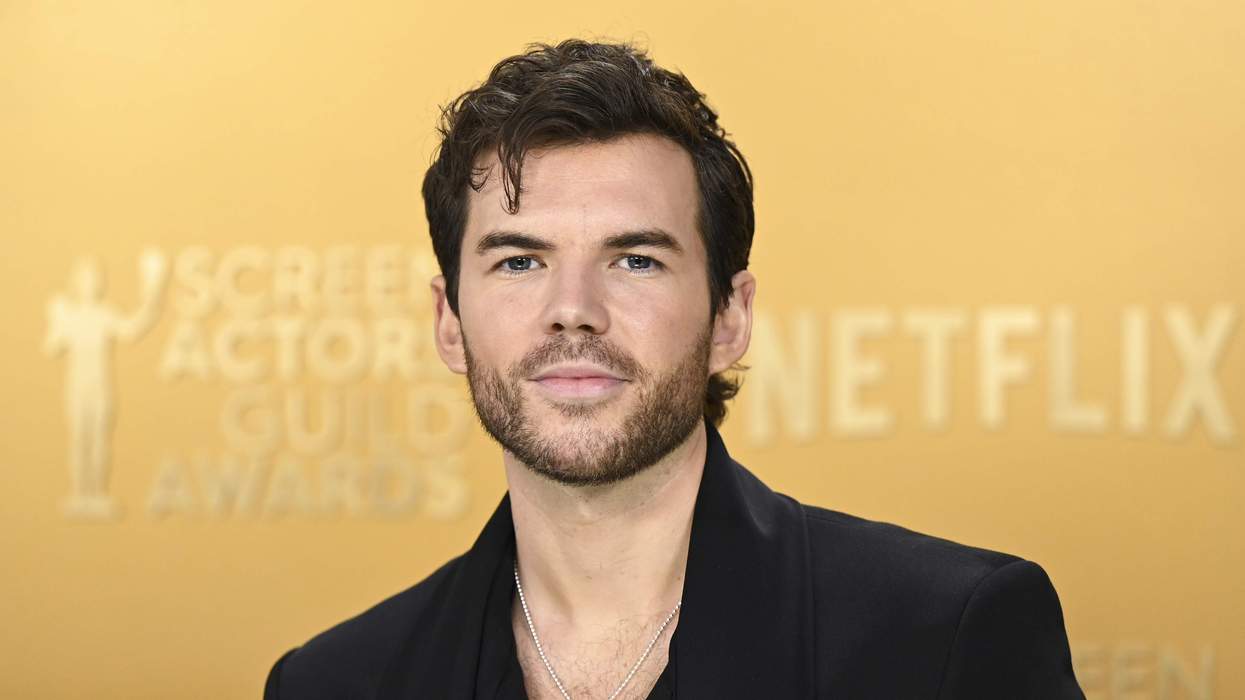For Jack Qu'emi Gutierrez, having an abortion didn't come down to just paying $500 and finding a way to get to the clinic. Like many of their doctors' office visits, it meant hiding their gender identity to avoid difficult conversations with medical providers. As an Afro-Latinx nonbinary person, the ultrasound (required by Florida law) before the medical abortion and the subsequent "gory" induced miscarriage left them not only bedridden, but heightened their discomfort with their body.
"It was awful," Gutierrez says of the days following the 2011 ordeal. "A lot of my dysphoria comes from having a uterus and how people perceive how I look. I was like, 'I want to pretend I don't have a vagina.'" There's a misconception that queer and trans people, like Gutierrez, don't need abortion access or that they aren't notably affected by the fight for reproductive rights. "A lot of it has to do with mythology over the LGBTQ+ community and who we are. Thinking that our relationships are same-gender...and aren't affected by issues like abortion," says Candace Bond-Theriault, senior policy counsel for reproductive health, rights, and justice at the National LGBTQ Task Force. But in a political climate where abortion access across the country has been
diminishing for people who are low income, queer, and of color, legal abortion is far
from guaranteed.
For decades, those who need care have suffered bans on using public funds to cover the procedure, recent state laws mandating waiting periods, gestational limits, and onerous requirements on clinics. But they have also been disadvantaged by the costs of travel, taking off work, and finding childcare to have an abortion -- nevermind the prospect of having to hide their sexual orientation or gender identity, or being traumatized by the lack of competent, inclusive care.
While marginalized groups struggle to be heard in the abortion conversation, queer women, in particular, are broadening how society understands self-determination and the many ways reproductive justice can take form. "When you come out [as queer], it's powerful because we're coming from behind the veil," says Monica Simpson, the executive director of SisterSong: National Women of Color Reproductive Justice Collective. "That's the same thing that we do with reproductive justice in our lives, to bring forth children, and to live in the bodies that we have, in the ways of the bodies we need to."
SisterSong has played a major role in the Reproductive Justice Movement since its co-founder and first national coordinator Loretta Ross (along with a larger circle of prominent Black women) established "reproductive justice" as a framework in 1994. Their work expanded the concept into a movement focused on human dignity, bodily autonomy, and securing the right "to have children in the ways that we want, to not have children, to prevent or end our pregnancies, and to parent the children we already have in healthy and safe environments."
According to Simpson, joining the organization in 2010 was a revelation after working for a gay and lesbian community center and in criminal justice reform. She grew up in North Carolina and reveals that she rarely, if ever, heard any mention of LGBTQ+ "anything" and saw "almost every young girl get pregnant" at the Black Missionary Baptist church that she attended. "You didn't have to check off the boxes at the door," Simpson, 39, says of SisterSong. "In doing LGBTQ+ work, it couldn't hold my Blackness. In doing work around the prison industrial complex, you couldn't talk about queerness.... The Reproductive Justive Movement felt like my political homecoming."
Now Simpson's work empowers women of color to lead community organizing efforts through direct action, trainings, art, and conferences that span racial, economic, and criminal justice issues. She sees the ability for queer and trans people to self-determine at the core of the movement, from rejecting violence against transgender women to addressing the "very unique challenges" queer people face when they want to become parents.
With the latter, the community faces a litany of barriers. Foster care and adoption agencies can legally refuse would-be LGBTQ+ parents on the basis of religious freedom in ten states. Meanwhile, most states do not have policies that protect LGBTQ+ people seeking to adopt or foster, according to a 2018 report from the Center for American Progress. "As a queer Black woman, doing in vitro fertilization is hella expensive. With cis Black women, [there are] different challenges," Simpson says. "What I appreciate about reproductive justice is that it gives us a space to talk about the many layers."
For Black women, the layers include a maternal mortality rate that is three to four times higher than that of white women in the United States, according to data from the Centers for Disease Control & Prevention. And across the board, Black Americans receive less effective medical care compared with white patients and are even less likely to be treated for pain owing to doctors' racial biases, according to data from the Institute of Medicine and the National Institutes of
Health, respectively.
Allowing for those nuances in reproductive health conversations can be personally enlightening. When Laurie Bertram Roberts attended a SisterSong training, she cried. The mother of seven says she was hesitant to come out as queer for fear of her parenting being scrutinized. "They talked about the right to parent and it was like being seen. Sometimes you know things aren't right, but you don't have a framework for why it's wrong," Bertram Roberts says. "And that's how I felt about the constant policing of Black women as parents, especially poor Black women."
Bertram Roberts is the co-founder and executive director of the Mississippi Reproductive Freedom Fund. With just one abortion clinic in the entire state, her Jackson-based organization provides funds for the procedure, arranges transportation and housing, and even has a food pantry. The fund also offers traditional contraception, Plan B, and comprehensive sexual health education that's "inclusive, but also talks about the right to pleasure." These issues also fall under reproductive justice, according to Bertram Roberts, and have been chipped away by the Supreme Court's Hobby Lobby decision and the federal government's attempts to cut programs preventing teen pregnancy.
Religion was also a force in Bertram Roberts's early life. Growing up in a fundamentalist Christian family in the Midwest, she says she's come to this work through experience, like being turned away from having an abortion and nearly dying during a miscarriage. "It all intersects -- giving people rides, talking about pronouns, using inclusive language, going to the city council, fighting back against curfews or saggy-pants bans. All of that work matters just as much as abortion access. It's not an either-or," she says.
The Women's Medical Fund also works through its own "radical, badass economic justice model," says Elicia Gonzales, its executive director. Founded in 1985, WMF is one of the oldest and largest funds in the country. The Philadelphia-based organization supported nearly 3,300 people in having abortions from July 2017 through June 2018. As a queer Latinx woman, "I didn't see myself reflected in the communities," 44-year-old Gonzales says. Her background makes her "think about who's at the table [and] who we aren't hearing from." In her work, it's important to have folks feel comfortable being their "full selves in reproductive health spaces -- nonbinary, disabled, undocumented -- having folks feel safe and validated in our organizations is going to make or break us," she says.
It's through this intersectional vision, organizing, and activism that Simpson, Bertram Roberts, and Gonzales are expanding narratives around who has an abortion and what it means to have self-determination when it comes to reproductive healthcare, parenting, and beyond. Seven years after having the procedure themself, Gutierrez is driven by a similar desire for representation to teach other trans and gender-nonconforming people how to feel good in their bodies. "I had to navigate so much alone because I couldn't find evidence of the others like me, going through the same things," they say. When it comes to abortion, "We're out here, and we have to support one another."
To read more, grab your own copy of Out's March issue featuring "The Mothers and Daughters of the Movement" as the cover on Kindle, Nook and Zinio today, and on newsstands February 26. Preview more of the issue here. Get a year's subscription here.



